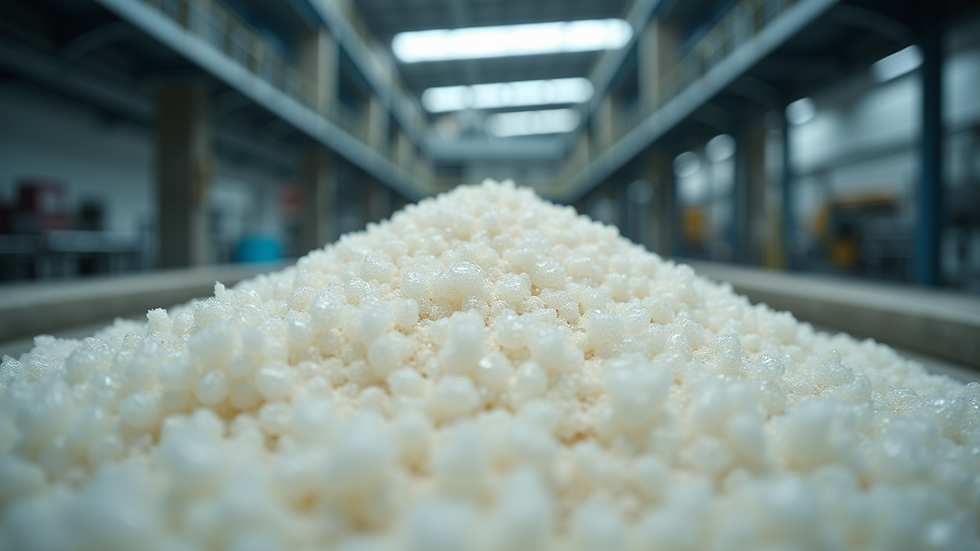Unveiling the Dynamics of the Brazilian Sugar Trade in a Global Context
- unitedinternationa3
- Aug 15, 2025
- 3 min read
The Brazilian sugar trade is a cornerstone of the global agricultural market, impacting economies and consumer behavior worldwide. As the world's largest producer and exporter of sugar, Brazil significantly shapes the dynamics of the industry. This blog post explores the complexities of the Brazilian sugar trade, its historical context, current trends, and its global impact.
Historical Context of Sugar Production in Brazil
Brazil's sugar industry began in the 16th century when Portuguese colonizers cultivated sugarcane in the fertile, tropical climates of the northeastern region. This favorable environment has allowed Brazil to thrive as a sugar producer. By the 19th century, fueled by international demand and the labor of enslaved people, Brazil emerged as the leading sugar exporter globally.
The end of slavery in 1888 created a labor shortage that forced the industry to adapt. Producers began mechanizing operations and looking for new labor sources. As a result, Brazil pivoted towards modern techniques and today combines innovation with sustainable practices, thus maintaining its prominent position in both sugar and ethanol production.

Current Trends in the Brazilian Sugar Market
Recent years have brought significant changes to the Brazilian sugar market due to various factors such as climate change and changing global demand. Brazil produces both raw and refined sugar, with around 45% of its output exported—primarily to countries like the United States, India, and China.
A standout trend is the growing demand for biofuels, particularly ethanol derived from sugarcane. Brazil is a leader in biofuel production, and government policies promote the use of ethanol as a sustainable energy source. In fact, about 30% of gasoline in Brazil is blended with ethanol, which not only benefits the sugar industry but also aligns with the country’s efforts to lower greenhouse gas emissions.
However, the Brazilian sugar market also grapples with challenges, such as fluctuating prices and rising competition from countries like India and Thailand. More consumers are shifting towards healthier alternatives, compelling Brazilian producers to innovate and adapt, whether by creating organic sugar products or exploring new markets.
The Role of Technology in Sugar Production
Technological advancements are transforming the Brazilian sugar industry, enhancing both productivity and sustainability. For example, precision agriculture allows farmers to track crop health, optimize water usage, and reduce fertilizer application. These practices can increase yields by up to 20%, while also protecting the environment.
Moreover, improved processing techniques have enhanced sugar extraction efficiency. The introduction of biotechnology has aided in developing sugarcane varieties that resist diseases, thereby ensuring consistent productivity even under challenging climate conditions. As Brazil continues to invest in technology, it can expect further gains in efficiency and sustainability in meeting both domestic and international demands.

Global Impact of the Brazilian Sugar Trade
The Brazilian sugar trade has wide-ranging effects on the global market. As a leading exporter, Brazil has a direct impact on worldwide sugar prices. For instance, a production dip in Brazil can trigger price hikes globally, affecting industries and consumers alike.
Brazil's commitment to sustainable practices in sugar production sets an international standard. With increasing pressure to combat climate change, Brazil's focus on biofuels and eco-friendly practices helps shift the global narrative toward renewable energy solutions.
Moreover, the sugar industry plays a significant role in Brazil's economy, providing jobs to over 1 million workers and supporting rural communities. It's essential for Brazil to balance economic growth and environmental responsibilities to ensure long-term viability in the sector.
Challenges Facing the Brazilian Sugar Industry
Despite its strengths, the Brazilian sugar industry confronts several challenges that could threaten its future. Climate change is one of the most significant issues, as shifts in weather patterns can severely impact crop yields. For example, drought conditions can lead to yield drops of up to 50% in some regions.
Intensifying global competition from countries such as India and Thailand, which are increasing their sugar production, poses another threat. These competitors can create price wars, which can destabilize the market. To adapt, Brazilian producers must focus on innovation and product differentiation.
Additionally, trade policies and tariffs can greatly affect Brazil's export capabilities. Changes in international trade agreements require proactive measures to navigate these evolving regulations effectively.
The Way Forward for Brazil's Sugar Trade
The Brazilian sugar trade remains a dynamic industry with a rich history and a crucial role in the global market. With ongoing trends toward sustainability and technological integration, Brazil is well positioned to lead in sugar production.
To continue thriving, it is vital for Brazil to adapt to challenges like climate change and increasing competition. By prioritizing sustainable practices and leveraging technology, Brazil can reinforce its status as a leader in the sugar trade while contributing to a more sustainable global future.




Comments